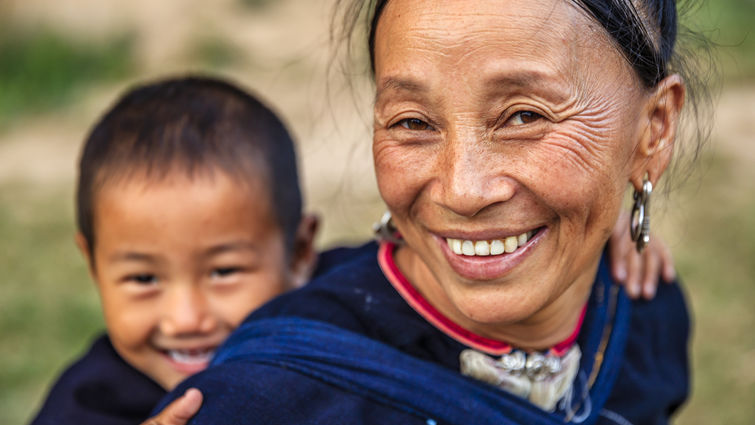
With the increased awareness of different cancers and the continuous news of different celebrities being diagnosed, many people ask the question, “could I be next?”
Before falling down the rabbit hole of assumptions, Loma Linda University Cancer Center director Mark E. Reeves, MD, PhD, wants to break down the likelihood of cancer and what role genetics play.
In 2019 alone, there will be over 1.7 million Americans diagnosed with cancer, according to the American Cancer Society. The majority of patients Reeves sees who are diagnosed with cancer ask, “why me?”
“Out of all the patients I see for cancer, almost all of them will ask me, ‘how did I get this?’” Reeves says. “They go on to ask, ‘did I inherit this from my parents?’ Most of the time I respond with ‘no.’”
The important thing Reeves wants patients to know is that inheriting cancer is not as common as one may think. Here are four things to know:
- Direct genetic inheritance plays a small role in the overall cancer population. When you look at the cases of cancer across the country, Reeves says only 5%-10% come from direct inheritance of a classically defined “cancer mutation”. These are mutations, such as mutations in BRCA for breast or ovarian cancer, that can be passed on from a parent to their children. If your parent has one of these mutations, and you inherit it from them, then your chance of getting cancer is much higher than most other people. If this is the case, there will often be many people in the family with certain types of cancer, often at an earlier age.
- Genetic testing should only be done when needed. How do you know if you inherit a type of cancer? Reeves says the easiest way to find out is to do the family math. Start by determining who and how many people in your family have had a certain cancer. It’s a warning sign if you find in your family tree that many people who had the same cancer were young when they got it. If so, your doctor will want to test you for that mutation. Reeves recommends first having a conversation with your doctor about which cancer screening tests might be appropriate for you.
- Researchers continue to develop advances to fight genetic cancers. For inherited mutations, Reeves says the Cancer Center offers patients risk reduction strategies where a patient will get screened more aggressively for cancer development. In addition, there are medications and new surgical approaches that can reduce a patient’s risk of cancer for those classic mutation cancers — if it runs in the family. The sooner the patient is aware of their condition, the better.
- Your genetics aren’t set in stone. Reeves says the relationship between cancer and genetics is not a straight forward story. Environment can also play a significant role together with genetics. For example, patients with melanoma — or skin cancer — and a close relative who has had melanoma may think they too have a high chance of developing it. Reeves says the reality is that the vast majority of their risk comes from the fact that they inherit the pigment characteristic of light skin, hair and eyes. Therefore, if you inherit characteristics but are careful about sun exposure, you can reduce your risk of getting skin cancer.
Again, every cancer is different, and Reeves wants patients to remember that only a small fraction of all cancers are directly inherited. He says the best prevention is knowing your family history and maintaining a healthy diet and lifestyle. If you are interested in learning more or partnering with a cancer specialist for whole person care, visit the Loma Linda University Cancer Center website or call 1-800-782-2623.
